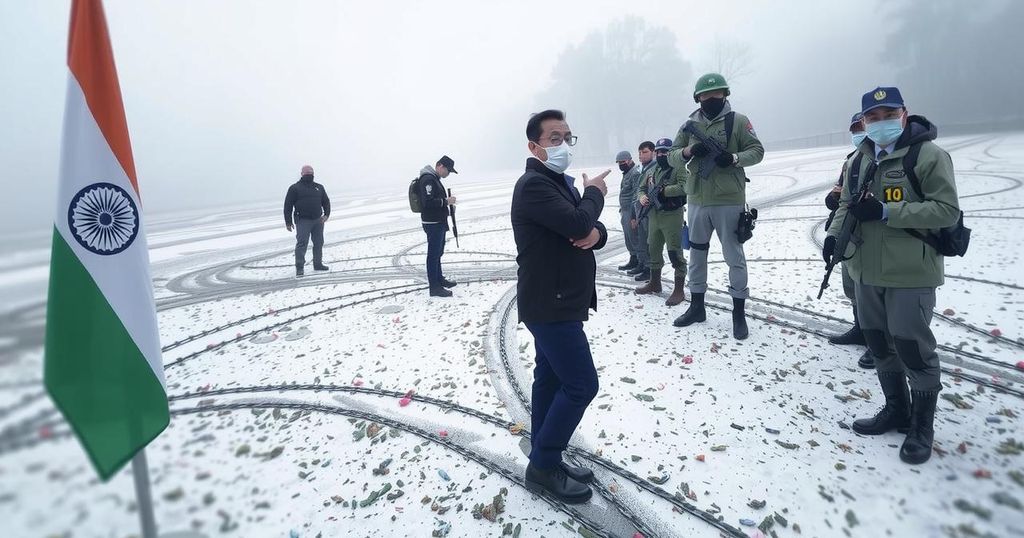General Upendra Dwivedi, India’s Army Chief, characterized the India-China border situation as “stable but sensitive”. He ruled out the creation of buffer zones along the Line of Actual Control, emphasizing the importance of ongoing dialogue and mutual agreements post-recent disengagement at key flashpoints. Trust levels must be redefined to manage the situation effectively.
The Chief of the Army Staff of India, General Upendra Dwivedi, addressed the ongoing situation along the India-China border during the annual Army Day press conference. He characterized the border scenario as “stable but sensitive” and explicitly rejected the notion of establishing any buffer zones along the Line of Actual Control (LAC). General Dwivedi noted that the situation is strengthened by recent dialogues, including meetings between Indian Prime Minister Narendra Modi and the Chinese leadership.
He affirmed that both countries have engaged in verification patrols and have reached mutual agreements regarding grazing grounds. The general elaborated that the current lack of buffer zones implies a conscious decision to avoid escalation of tensions. He proposed that further discussions are necessary to redefine trust levels between the two nations and to develop broader understandings aimed at de-escalating conflicts.
General Dwivedi also indicated that disengagement efforts at Depsang and Demchok, where both sides have withdrawn troops and dismantled temporary structures, were successfully completed in October, marking a significant step toward stabilizing the LAC in light of prior tensions dating back to May 2020.
The India-China border dispute has a long-standing history, marked by military clashes and territorial tensions. The disengagement in eastern Ladakh, particularly at core flashpoints such as Depsang and Demchok, was initiated following a standoff that intensified in May 2020. Diplomatic efforts have since aimed at normalizing relations and defining engagements along the border, underscored by high-level discussions between national leaders of both countries. The situation remains delicate, demanding cautious negotiation and military management to prevent the resurgence of conflict.
In summary, General Upendra Dwivedi’s remarks reflect a commitment to maintaining stability along the India-China border without the implementation of buffer zones. The discussions that have taken place underline a mutual recognition of the complexities involved in the LAC management. Continued dialogue and trust-building measures are essential as both nations work toward a peaceful resolution of their longstanding border issues.
Original Source: www.hindustantimes.com






